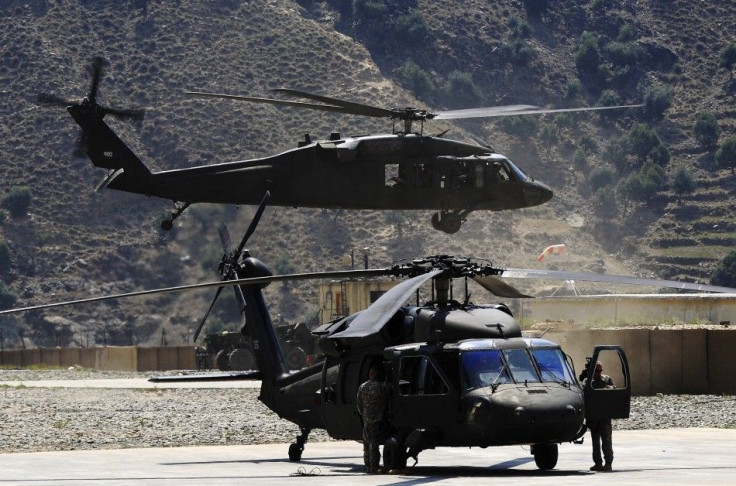US Mulls Full Withdrawal Of Troops From Afghanistan By 2014

The United States for the first time announced Tuesday that the administration is considering a full withdrawal of the U.S. troops from Afghanistan by the end of 2014.
The White House in a news briefing, ahead of Afghanistan President Hamid Karzai’s arrival to Washington for a series of high-level meetings with the U.S. administration later this week, said a “zero option" is one of the possibilities that would come up for discussion.
Karzai arrived Wednesday to Washington and is scheduled to meet President Barack Obama Friday to discuss issues ranging from the troops withdrawal to economic and defense ties and the progress in peace talks with the militant groups.
Speaking to reporters, Ben Rhodes, deputy national security adviser said the emphasis during the meeting will be on the future course of the counter terrorism and training mission and the transition in Afghanistan than on the number of the U.S. troops.
However, when quizzed on the possibility of a full withdrawal of troops, Rhodes said the option cannot be ruled out.
“That would be an option we would consider. We wouldn't rule out any option… we're not guided by keeping any [specific] number of troops in the country," Rhodes said according to a Guardian News report.
The White House said the proposed meeting will not result in any crucial decisions or agreements between the nations, but will provide a platform for the leaders to take stock of the situation and plan ahead of the transition and the April 2014 elections in Afghanistan.
"This is not a visit where President Obama will be making decisions about the U.S. troop levels in the immediate future or beyond 2014," Rhodes said, RTT News Reported.
"It's a visit where the two leaders will be able to consult about those issues, and then in the coming months, President Obama will be able to make those decisions in consultation with his national security team," he told reporters.
The U.S. is committed to withdraw majority of its troops in phases by the end of 2014. However, the final number of troops to continue in Afghanistan is still undecided. Although the Afghanistan government is asking for a full withdrawal of NATO troops from the rural areas, the Pentagon and the defense observers believe such a move before well-equipping the local military in combating terrorism would benefit Taliban-led insurgents.
“If we allow Afghanistan to become completely unstable, Pakistan’s stability is really difficult,” Gen. Stanley A. McChrystal, former American commander in Afghanistan told the New York Times in a recent interview. “So I think there’s a geostrategic argument for it.”
Under the strategic framework agreement signed last year a mutually agreed number of troops can remain in Afghanistan to combat terrorists and provide strategic and logistic support to the Afghanistan Army.
The NATO has recommended retaining 6,000 to 15,000 troops in the country after 2014, while the White House prefers 3,000 to 9,000 troops, according to a Reuters report.
The decision will be taken considering the progress in Afghanistan military’s training and its ability to independently combat the terrorist cells in the country, the immunity and protection granted to the U.S. forces by the Afghanistan government.
Both the governments are negotiating issues related to the immunity and the protection for the U.S. forces in Afghanistan, and this is expected to be the core of discussions.
"I think they will have very candid discussions about the sorts of immunities that the bilateral security agreement might have," said Doug Lute, deputy assistant to Obama and White House coordinator for South Asia, the Guardian has reported.
© Copyright IBTimes 2024. All rights reserved.






















